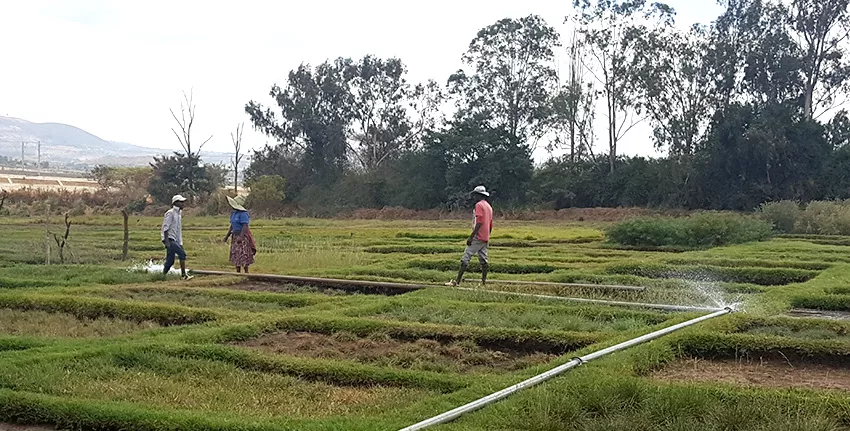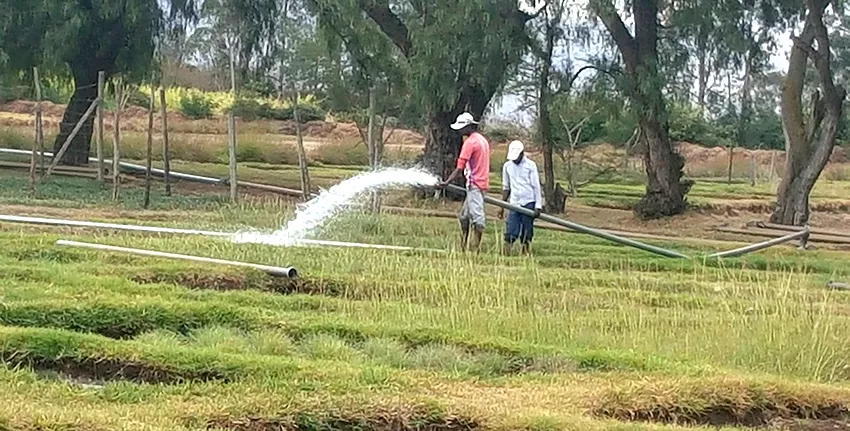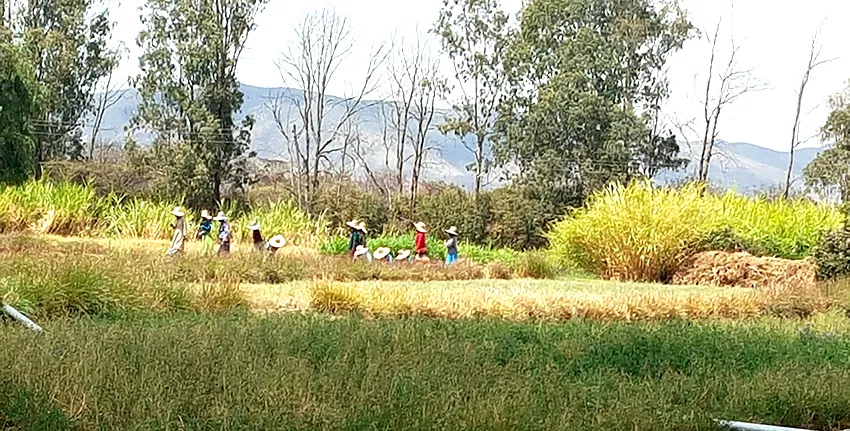Training farmers to cope with salinity in Ethiopia
Agriculture is the mainstay of the Ethiopian economy, so much so that it accounted for 42 percent of the country’s GDP in 2014 and about 85 percent of its export earnings in 2010. It also employs 83 percent of the economically active population.
Smallholders dominate the sector and number in millions. However, they face a range of increasing risks to the main source of their livelihood such as recurrent droughts and salinization.
Salinity is a growing problem in irrigated areas due to poor on-farm irrigation practices and lack of adequate drainage facilities. Over 11m ha of land is estimated to be already affected. As staple crops like cotton and wheat fare badly in saline conditions, it is becoming more important to find alternative solutions to make the most of salt-affected lands which are otherwise normally abandoned.
Dr. Asad Qureshi, a senior irrigation scientist at the International Center for Biosaline Agriculture (ICBA), says that it is crucial to restore degraded lands into production and protect newly developed areas from the spread of salinity across the country as it reduces natural biodiversity and farm productivity.
The cultivation of salt- and drought-tolerant forages and halophytes is, for example, one way to bring these lands back into use. It is also promising given a sizeable livestock sector in Ethiopia; there were over 50 million cattle, 50 million poultry, 20 million sheep and 20 million goats in 2015.
Like other organizations, ICBA works in the country to help small-scale farmers better manage risks to agricultural production.
As part of this work, ICBA and its partners launched a project called Rehabilitation and management of salt-affected soils to improve agricultural productivity (RAMSAP) in 2016.
Under the project, scientists from ICBA and other organizations aim to share suitable practices and crops with farmers so that they know how to cultivate degraded lands and minimize salinization. They conduct training courses and other knowledge-sharing events for farmers and specialists of agricultural extension agencies.
One such event was held on 25-26 April 2017 for more than 25 agricultural officers and extension workers from different organizations in Ethiopia’s Oromia region. During the course organized jointly with the International Livestock Research Institute (ILRI) and the Ministry of Agriculture and Natural Resources of Ethiopia, participants learned how to identify and manage crop genotypes for salt-affected areas.
Participants also learned how to identify different types of salt-affected lands, manage these lands and which legumes and fodders they can plant to rehabilitate salt-affected lands. They were also briefed about various irrigation techniques to manage salinity.
Funded by the International Fund for Agricultural Development (IFAD), the RAMSAP project is working to rehabilitate salt-affected and degraded lands by introducing efficient water management practices and salt- and drought-tolerant forages and halophytes in Ethiopia and South Sudan.
The project targets 5,000 smallholder farmers directly in ten selected field sites, five in each of the two project countries with each site comprising 50-100 farms to cover a total of about 300,000 ha (directly and indirectly) of the farmland.


